The costs of caring for our pets are rocketing.
With soaring vet bills and the cost of living crisis continuing to put pressure on people’s finances, some fear they could be forced to give up their pets – because they simply cannot afford them.
In 2024, in Dundee, the Scottish SPCA responded to 1,594 reports of animals in need.
And, nationwide, the charity experienced a worrying 24% increase in calls from people looking to surrender their pets.
It received 4,779 calls last year, which is an average of 92 people every week.
Luckily help is at hand for those in Dundee, with the launch of the Scottish SPCA’s very first ‘wraparound’ Pet Aid Community Advice Hub.
Here, people can access not just vet teams, but also animal behaviourists, adoption and fostering coordinators, inspectors, plus mental health (SAMH) and financial advisers from the Citizens Advice Bureau.
For those who need it, there’s pet food provided, free of charge.
The project is being piloted in Dundee – and the model could be rolled out across Scotland to help with the nationwide issue.
The thinking behind it is clear: the Scottish SPCA is on a mission to keep owners and pets together.
The charity regards the concept of taking a pet away from its home and loving owner as an absolute last resort.
Who visited the pilot clinic?
To find out more, I headed along to the very first community drop-in clinic at the Finmill Centre in Fintry, from which the new project was launched on April 2.
Maltese mixed breed Max, 11, was among the flurry of four-legged friends to attend, along with his proud owner Craig Dowdles.
Craig, 49, who’s currently out of work, was concerned the little lad was lame. A free vet check was a no-brainer.
“My wife had Max out for a walk and he had a wee bit of a hobble on his right foot,” Craig told me.
“He’s 11 and we adore him. We’ve had him since he was a puppy, and we don’t want him to suffer.”
Vet Anna Gray gave Max a full clinical examination, checking his heart, lungs, eyes, ears, teeth, lymph nodes, abdomen and pulses.
She found matted fur on Max’s foot, and, suspecting this might be causing his discomfort, and possibly lameness, she deftly clipped it off.
Rescue dog’s sad story
Meanwhile, Mel Jeffrey brought along 11-month-old Staffie-cross Autumn for a check-up.
She took time to share the puppy’s harrowing back story with me.
“We got her from the Scottish SPCA before Christmas,” said Mel.
“The owners left her in a crate and moved out. She’d had no food or water for ages, and was worryingly underweight. She had fleas and overgrown nails.
“Poor Autumn suffers from itchy ears and nibbles at her nails, so we wanted her checked.”
Anna performed a full health check, and then discussed Autumn’s diet and allergies.
Mel also met community animal behaviourist Jo Vasey, who talked through Autumn’s nibbling, or ‘mouthing’, habit.
“A lot of dogs jump up to ‘mouth’,” said Jo. “We call it displacement behaviour.
“Basically they’re feeling big feelings and don’t know what else to do.
“We need to make sure we’re not rewarding that behaviour by giving attention. Do we need to give them a toy to re-direct them, or do we distract them, or ask them to sit?”
Pet food bank
Louise Mackay, 33, who lives in Mill o’ Mains, came along with her two daughters, eight-year-old Ellie and two-year-old Lexi.
“I’ve got three tabby cats, and feeding them isn’t cheap,” said Louise.
“I’m not working at the moment, so it was really helpful to get free cat food
“I had to give up my job because of my personal circumstances – my son’s got additional support needs – so it’s tricky.”
Not intentional neglect
Kirkton-based Karen, 47, and Andy, 49, McDermott brought their 11-year-old rough Shetland collie Jackson along.
They welcomed him into their family a year ago.
“An older lady with arthritis couldn’t look after him any more,” explained Andy, a gardener.
“She was struggling to keep on top of grooming, and Jackson had issues with his teeth that were causing pain.
“We want to get his teeth and weight checked. He topples over sometimes, so it would be good to hear what a vet has to say about his weak back legs.”
Why was Dundee picked for pilot project?
The pop-up Pet Aid Community Hubs are being piloted in Dundee, following research by the Scottish SPCA that indicated a pattern of ‘unintentional neglect’ of pets in the city.
It’s hoped that following the success of the first clinic, many more will be rolled out across Scotland – with at least one returning to Dundee later this year.
Important to keep pets at home
Jennie Macdonald, the SSPCA’s head of adoption, fostering and community engagement, stressed the charity’s ambition to keeps pets and owners together.
“No one should have to choose between feeding themselves and their pet,” she said.
“Our goal is to keep animals and their humans together: it’s an awful thing for someone to have to give up their pet. Also, a kennel environment compromises animal welfare.”
Jennie said services like Pet Aid are already making a huge difference, benefitting animals and communities.
She added: “We’re excited to be expanding in 2025 with our new Pet Aid Community Advice Hubs where people can access these services in more places across the country.
“By introducing more support earlier in a more preventative way and making sure we’re getting help where it’s needed most, we’ll keep more pets and people together.”
Jennie described the Pet Aid Community Advice Hubs as a ‘wraparound service’, where people can access a ‘one-stop-shop’ of support.
Why do people in Dundee need help?
As to Dundee being chosen as a pilot for the project, she said: “It’s a really diverse city.
“You’ve got some really wealthy areas, and areas that are struggling.
“I did some research and found there were a couple of areas where unintentional neglect was high. These people are not abusing animals; they’re struggling.
“These are people we need to help. The worst thing we could do is go in and say, oh, you can’t afford pet food, so we have to take your animal.
“Why can’t we provide a service which is better for the person, better for the animal? To keep them together, basically.”
Changing perceptions
That’s not all. The Scottish SPCA is on a mission to change people’s perceptions of the charity.
“Sometimes people see us as almost like the police, coming to tell them off and take animals away,” said Jennie.
“That’s really not what we want to do. We’re a charity and we’re here to help.
“Behind a struggling animal, there’s often a struggling human being. So we need to help them, too.
“We want people to feel comfortable to come and see us. Don’t be embarrassed to bring along your pet or ask for pet food – we won’t judge you.”
Alongside the new community services, the charity will continue to tackle acts of deliberate abuse and neglect, and to rescue animals through its enforcement powers.
Not a bad thing if the SSPCA show up
I also chatted to Scottish SPCA senior inspector Steven Gray. He echoed Jennie’s message that the charity is there to help – and not to be feared.
“The problem we’ve got is that people sometimes look on inspectors as some sort of enforcement officers,” he said.
“We would rather go down any route before prosecution. It’s trying to get across the message that it’s not a bad thing if we turn up.
“We spend time pointing people in the right direction – it could be about pet food, or veterinary costs.
“It’s getting away from the idea that if the SSPCA turn up at your door, there’s something wrong, or you’re in trouble.”
Steven encouraged people to reach out. “Don’t be scared to get in touch,” he stressed.
“We understand people can struggle – circumstances change, people separate, lose their jobs, and land up in financial difficulty. We’re here to help.”
All animals are welcome at the Pet Aid Community Hub sessions, whether dogs, cats, rabbits, parrots, or hamsters.
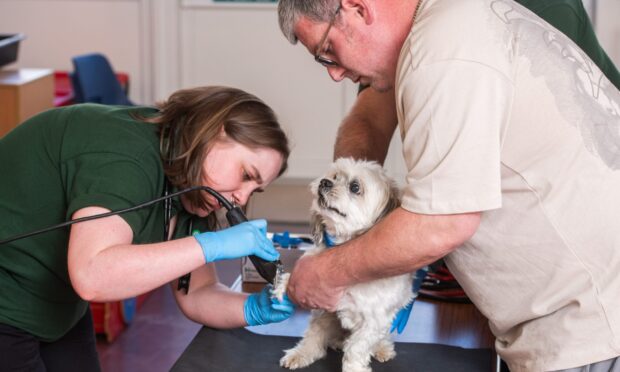
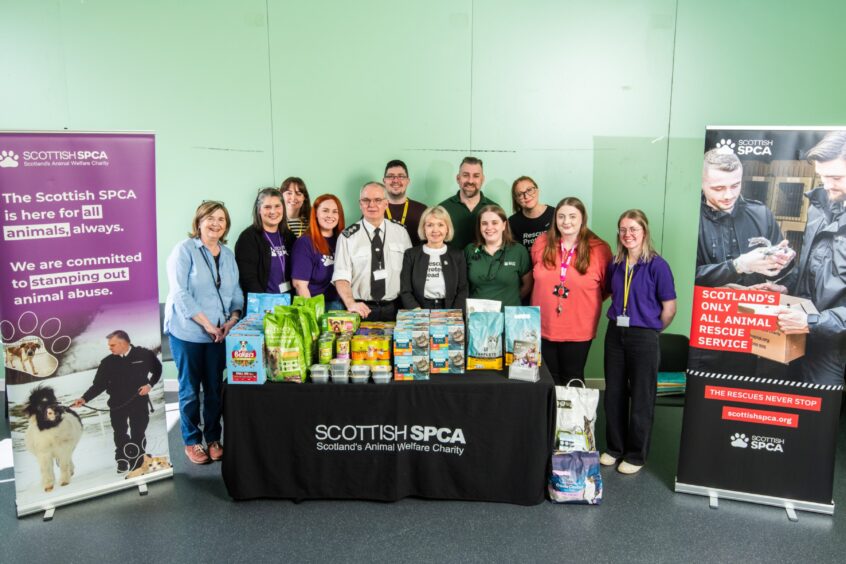
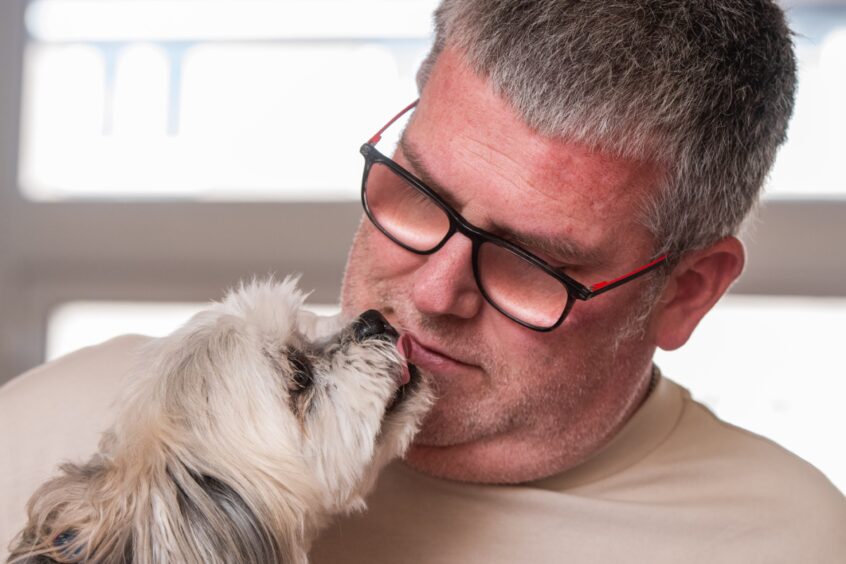
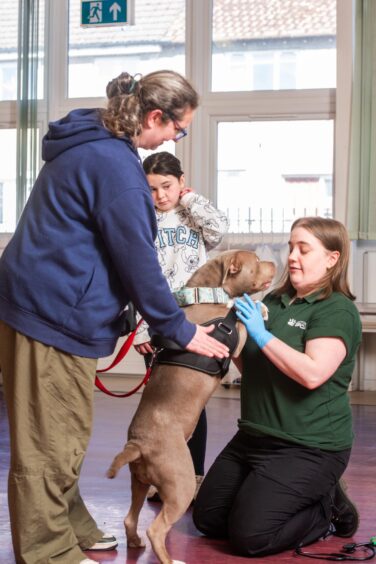
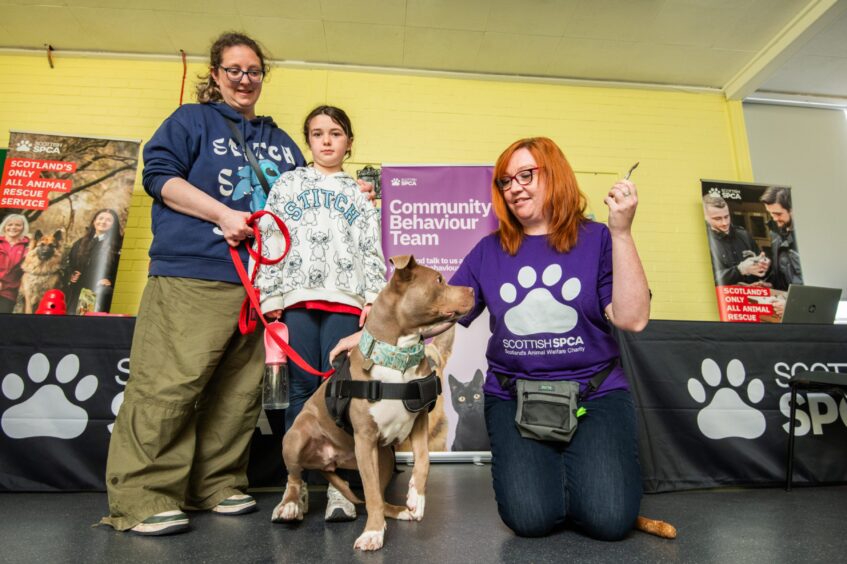
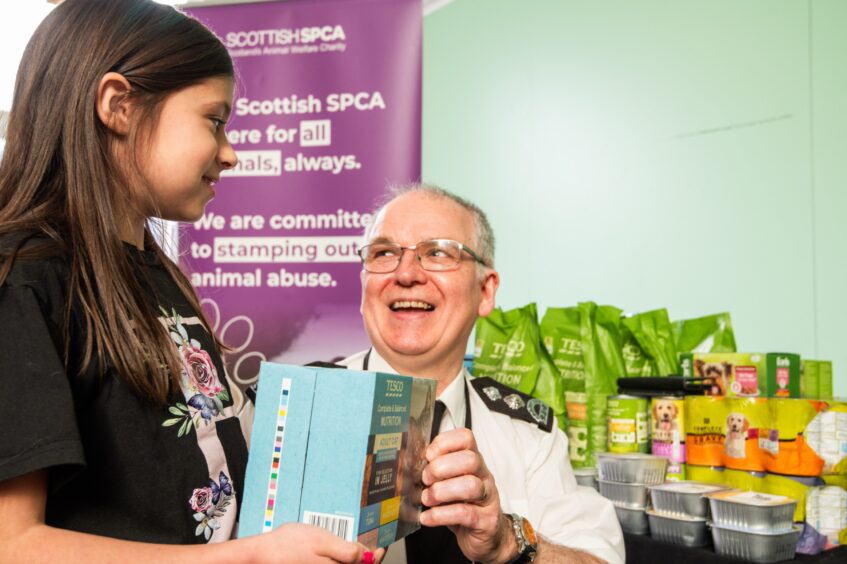
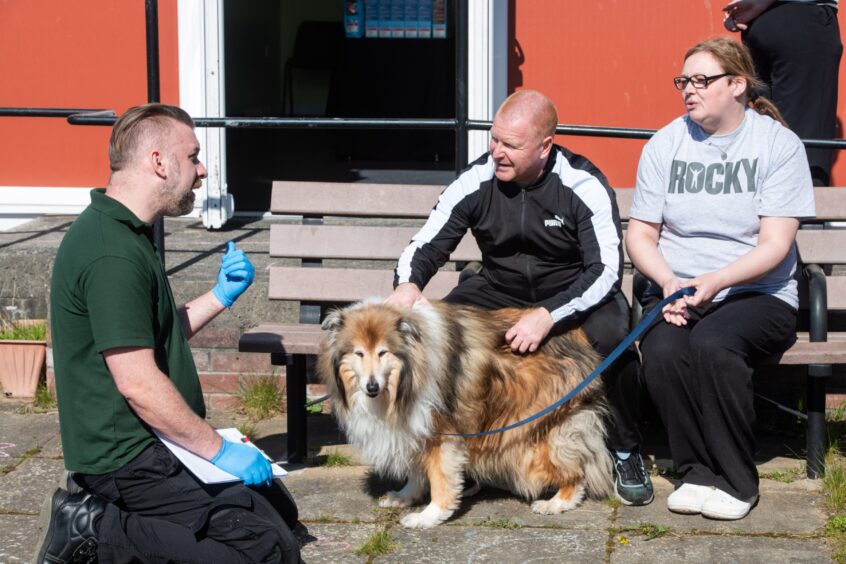
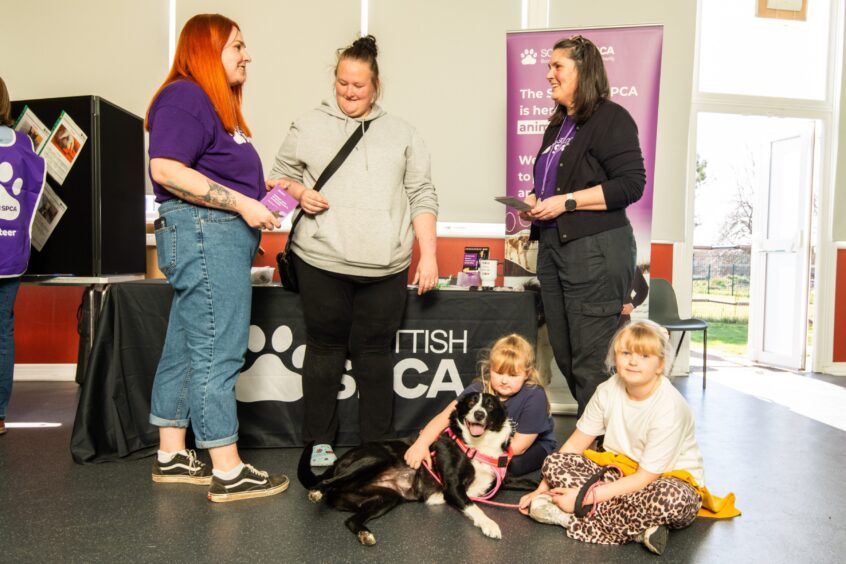

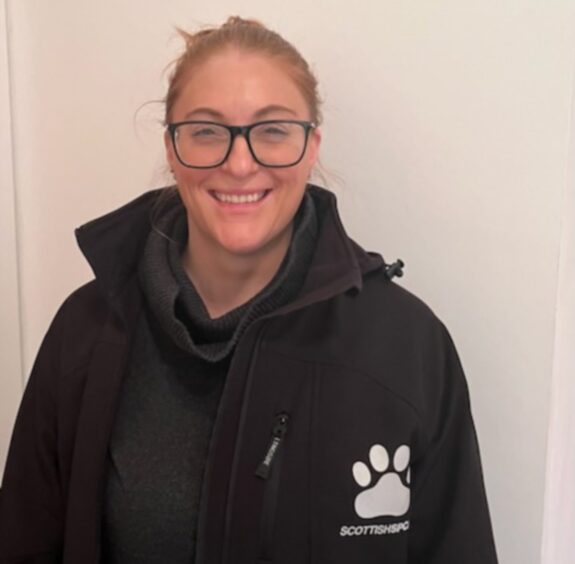
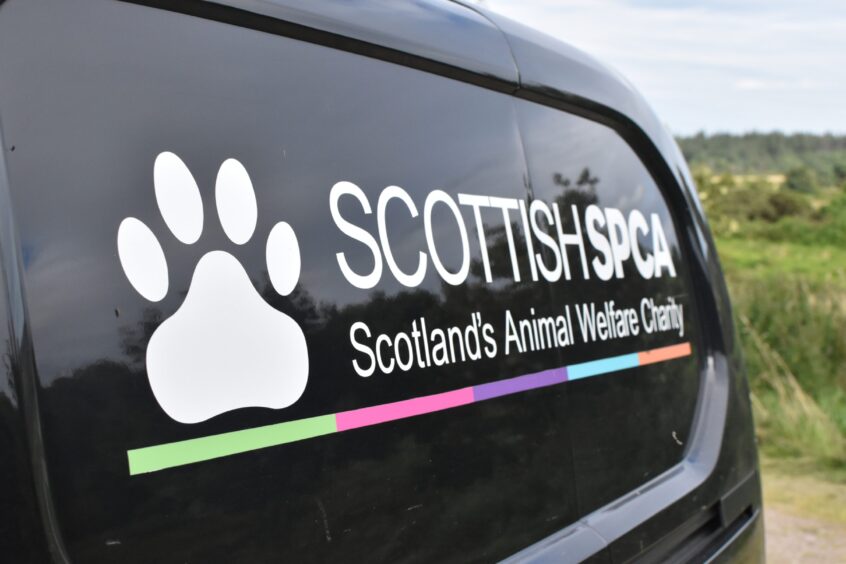


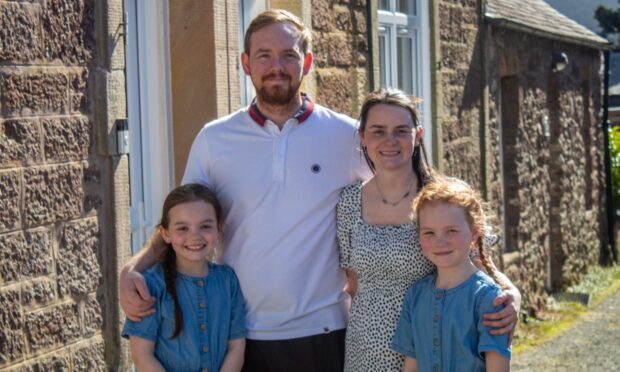





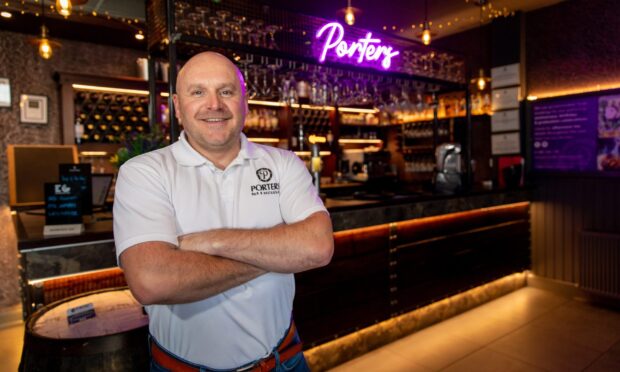

Conversation